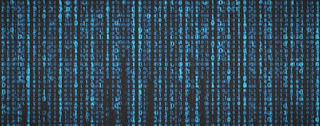The advantages of the Internet are unanimous. But its use is not without danger. Malicious software and acts of computer hacking can cause enormous damage to individuals and SMEs by causing the loss of data or the interruption of services, for example.
It is possible to guard against these risks by observing certain rules of behavior and by taking technical measures.
 |
| Hacker in computer |
Hack
Computer piracy (in English: hacking ) consists in intruding unduly into the system of a third party.
The hacker( s ) seek to gain access to the system without being noticed in order to be able to modify its content and organization as they see fit. Hackers' motives can vary widely, as can the impact of the attack on the target system.
Malware
Malicious software, also called “malicious” (in English: malware ), performs harmful operations on the computer system of a third party.
Their site, e-mail account or computer must have been hacked beforehand. Another gateway for malware is harmful data sent by email or placed on a site.
Forms of acts of piracy
Hackers attack websites in particular. They access it unduly to seize sensitive data stored on the servers. Their motives may be commercial. It will then be a question of reselling the data which has value (information on credit cards for example).
But the objective may also be to reveal alleged abuses by making the stolen data public. This kind of hacking is sometimes called “hacktivism” (a contraction of “hacker” and “activism”).
The motivations of “hacktivists” are political or religious. They instrumentalize the hacked site for a protest action that aims to raise awareness of their concerns or their objectives.
Hackers whose motives are political or religious frequently redevelop the sites of companies or socially exposed people as they see fit, an operation known as "disfiguration", "defacement" or even site "defacing". : defacing). Actions of this kind damage the image of their victim and often produce considerable financial losses, in particular when the attacked site is at the heart of their economic activity.
The target of hackers is not always a website. The attack frequently targets email accounts. Account hijacking (in English: account hijacking , hijack meaning "hijacking") allows the hacker to seize confidential data. He also uses the account to spread spam emails.
How does malware spread?
Malware is often spread through emails. These contain an invitation to the recipient to open an attachment or click on a link. If the recipient does, the malware automatically installs on their computer. He will copy, delete, lock or modify data there.
Malware can also infect the computer when visiting certain sites. This kind of infection is called a “ drive-by download ” attack . It occurs from a site that has been hacked in an attempt to spread malware. The sites used for this purpose can be quite serious and very frequented sites.
What forms can malware take?
Malware is a generic category. They include different types of harmful programs such as viruses, worms and Trojans. By definition, computer viruses and worms are harmful to the systems they infect by causing alterations ranging from trivial inconvenience to material damage and loss of data. In contrast, Trojans present themselves to the user as useful applications or files.
It is in the background that they perform harmful operations such as blocking the computer, encrypting personal data and taking control over sessions (on online banking platforms, for example).
Ransomware, also known as “ ransomware ”), illustrate how Trojans operate and their potential effects. Ransomware is a family of malware that encrypts files on the victim's computer and other endpoints on the shared network. The persons concerned can then no longer use their computer and access to their personal data is blocked.
A locked screen is displayed. It contains a message urging the victim to pay a certain sum to the hackers using cybercurrency (eg bitcoins) to obtain the restoration of access to the blocked computer and data.
Payment with virtual currency makes it more difficult to trace the perpetrators of the attack. It guarantees the anonymity of the transaction since it is not necessary for its author and its beneficiary to hold a bank account.
When the ransomware attacks an individual, the data blocked is personal data (vacation photos, for example); in general, the consequences are much more serious when the target is a company. Business-critical data such as contracts, customer information or accounting data are then rendered inaccessible and unusable.
Legal status
The constituent elements of at least one of the following criminal offenses are met in the event of an act of computer hacking or the distribution of malicious software:
- Art. 143 CP : data subtraction
- Art. 143bisCP : improper access to a computer system
- Art. 144bisCP : data corruption

Add Comments